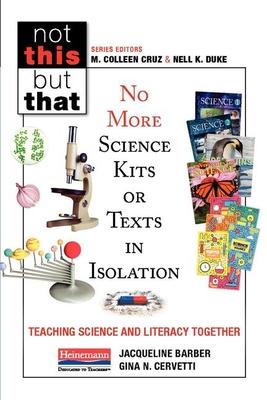It is common to engage students in the process of science, using mostly hands-on activities, and equally common to provide students with only science knowledge through mostly text-based experiences. Neither of these approaches is authentic to how scientists make sense of the world. Both fail to connect those experiences to the larger purpose of science. In this book Jacquey and Gina show you why, and how integrating science and literacy instruction supports students' understanding of and engagement in both.
Using research as their guide, Jacquey and Gina show you how to integrate science and literacy learning in a way that reflects the authentic ways scientists work. The authors have identified three key principles supporting this integration:
Principle #1: Frame student investigations with a scientific purpose.
Principle #2: Integrate "hands-on" science with literacy to support science learning.
Principle #3: Help students engage with text in science.
Throughout the book, they describe research that supports each principle and share examples of effective integration in the classroom that enhance students' science learning, reading and writing growth, and motivation.
To avoid the trap of textbook-only science or inquiry-only science, we need to aim for synergy - engaging students in using firsthand experiences and text-based experiences as connected parts of investigating questions about the natural world.
